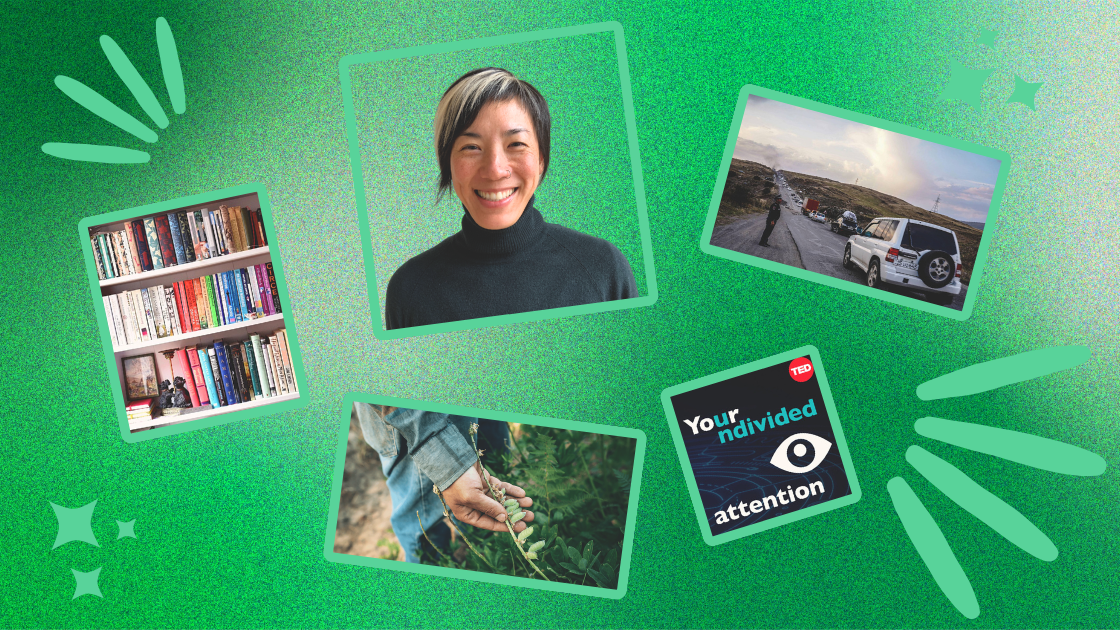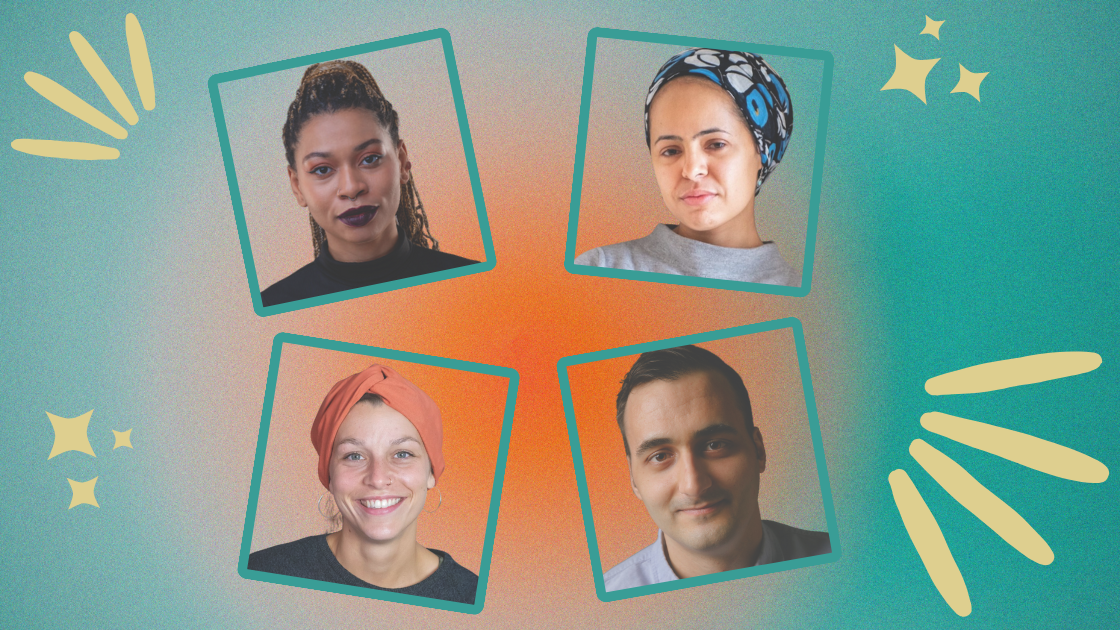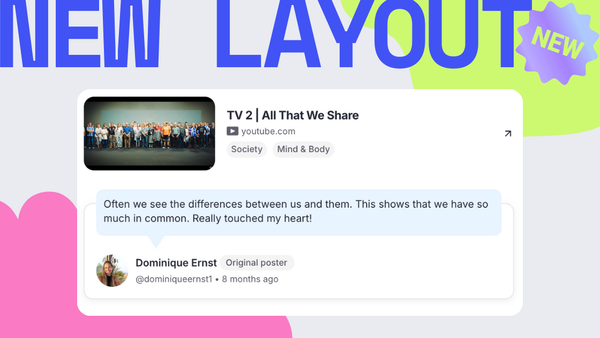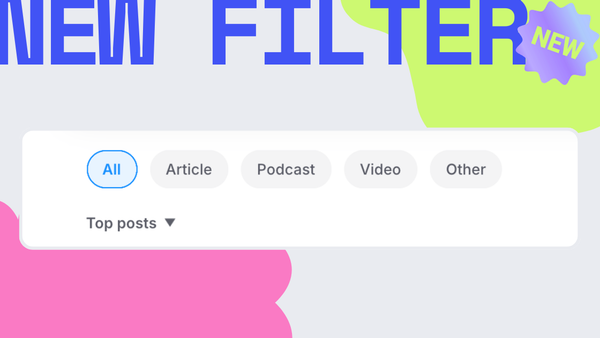✨ Insightful Content and an Appeal to You
Also: Meet our community member, Susan Liao!

So much happened in 2023, and it feels impossible to put it all into a newsletter. However, there's one thing we've heard and felt everywhere we've been this year:
People crave new ideas, solutions, and ways of doing things. This currently feels true in general, but especially with regard to our information environment. The attention around the launch of Threads is just one example of that. The demand for new and healthier products is real.
But it feels like we haven't really cracked it yet. The new social media platforms seem very similar to the old ones. This is partly because they're trying to improve things at a surface level and are not fundamentally tackling the underlying incentive systems. Most new platforms are based on the engagement model, likely leading to the same problems we see today. There are some exciting developments in the field, like the rise of prosocial design, community fact-checking, and bridging algorithms. Building these things on top of ad-driven platforms, however, is like building a castle on sand.
What if we created a completely new business model that supports these prosocial features instead of hindering them? Could we build a model that rewards people for increasing empathy and understanding? A self-sufficient model where all content is freely accessible but only high-quality content is amplified?
X is experimenting with a revenue-share model, but it rewards people for the views their posts generate, which obviously exacerbates the problems of clickbait, misinformation, and hate speech. [1]
We are building a different model that focuses on content quality rather than engagement metrics and rewards the creation of empathy and understanding. In this model, a post is amplified when people highlight it as having sparked new understanding, and in that case, the poster gets a share of the payments made by those users who pay to see only the highest-quality content.
This model is still at an early stage and will continue evolving. Nevertheless, we believe a better solution compared to today's dysfunctional systems can be built. But we can't do it on our own. A healthier global platform can only be built if smart and good-hearted folks from all over the world come together and co-create it. And you are one of those folks. Yes, you!
Please contact us if you are willing to contribute your thoughts to this project. We can change things if we come together.
Thank you!
Team Sparkable 💖
🎊 New members (+16)
This week, we welcome Roman, Elisa, Shu, Raquel, Mary, Sílvia, Emillie, Lena, Musa, Jana, Guy, Julia, Eugènia, Susan, Christoph, and other new members to the mailing list. 🙌
Tell your friends to join Sparkable so we can build a healthier platform together!
Table of content
- ✨ Sparks from the Community ✨
- 🌟 Community Spotlight
- 🤔 A question for you
✨ Sparks from the Community ✨
We're building a space where you can find content that sparks new understanding. Below, you'll find some of the posts made by people worldwide. 🌎 You can see all of them here.
✨ "It's December. [...] everything is reminding us to recall what we did this year. And it's hard to not also think about what we haven't achieved. I found this article about not meeting your annual reading goal comforting. Rather than giving me an excuse to avoid accountability, the article helped me find the confidence to say 'I love reading and I want to read more' in a year where I returned so many unread books to the library." —Elisa

👁️ "One of the conflict regions of the world that deserves more attention." —Guy, Portugal 🇵🇹

🤔 "In this podcast with Nita Farahany, I heard about the concepts of cognitive liberty and neurotechnology for the first time and she made me understand how rapidly we're moving toward having to fight for the last frontier of privacy: our freedom of thought." —Unknown

🙇 "It is possible to do so much, it encourages me not to give up hope, to dream about participation and makes me happy just to see how many good initiatives are on the way." —Christoph, 55, Switzerland 🇨🇭

📢 Your turn!
🔗 Submit a link!🌟 Community Spotlight
In each edition, we highlight a Sparkable community member working on a better future.
Susan Liao 🍜 🌈 🐶
Global facili-coach and social impact strategist, Founder of Startups for All and Leaders Like Us, and Founding Co-Creator of the Reimagining Unconference.

As a champion of liberatory leadership, Susan Liao is working to advance full representation of our most marginalized populations, including women of color and queer/trans BIPOC, as startup leaders and CEOs. She is an experienced equity-centered advisor, coach, and facilitator who works at the intersection of digital innovation, social entrepreneurship, and nonprofit impact strategy.
What's your biggest question at the moment?
Who are you building wealth for?
Who inspires you, and why?
Currently, the names most active in my mind (and in conversation) are adrienne maree brown, Audre Lorde, and Ruha Benjamin. Each has shared words about centering and honoring the small…the small steps that lead to meaningful, BIG change.
From Audre Lorde’s “Learning from the 60s” address, given in 1982 celebrating Malcolm X weekend at Harvard University,
“Revolution is not a one-time event. It is becoming always vigilant for the smallest opportunity to make a genuine change in established, outgrown responses.”
From adrienne maree brown, manifesting fractals in emergent strategy as
“Small is good, small is all. (The large is a reflection of the small.)”
From Ruha Benjamin, a statement she shared at the 2022 launch event for the Social Science Research Council's Just Tech platform,
“What does it actually look like to actually respect things at the small scale? And to work on things at a small scale before we have to do prime time…?”
In the context of my work in tech, startups, and executive leadership, I hold these words so close and often to my work to counteract traditional norms and decades of conditioning about moving fast, scaling fast, increasing velocity, achieving “hockey stick growth,” and continuous improvement... Especially that last one. Ten years ago, if you asked me why I make for an effective leader, an effective VP/executive, I would’ve said (and have said) because I strive for continual improvement!
Today, I’m older and wiser!
I cherish rest and acknowledge the ebb and flow of life and work. I talk more about evolving rather than improving, and care so much more for respecting the small rather than following stories about rapid growth and unicorns.
Not to say that unicorns are bad or unwanted. But I want to draw back the curtains even further and show that there are other pathways to earning and building generational wealth, other possibilities for futures that bring joy and prosperity to the communities you care about and that we care about.
Read the full interview
Discover Susan's lessons learned, her favorite quote, and her podcast recommendation! 💫
Contact Susan
Work: Linkedin ↗ (me) | Startups for All Website ↗, Startups for All Instagram ↗ (founders) | Leaders Like Us ↗ (liberatory leadership, future of work)
Explorations: Instagram.com/hellohiace ↗ (vanlife & puppyhood) | Instagram.com/ramengiving ↗ (giving back through the love of ramen)
See more featured community members
Meet other fascinating folks in responsible tech, digital rights, and peacebuilding, and get their valuable insights:










